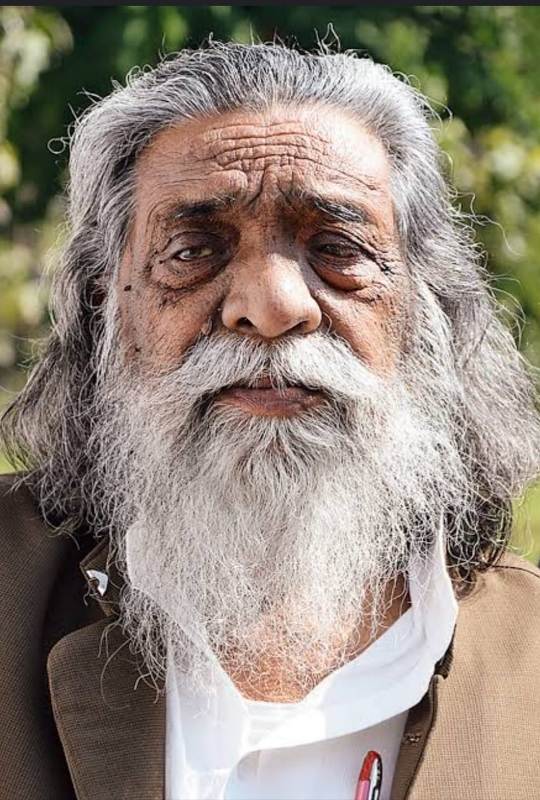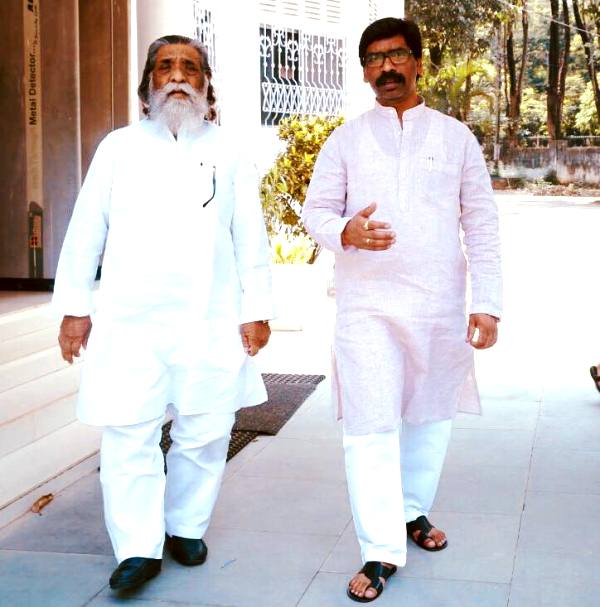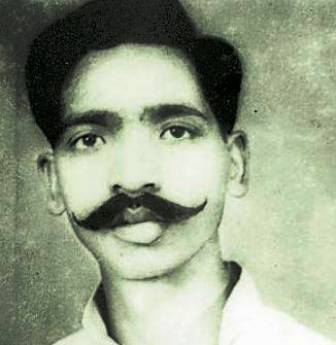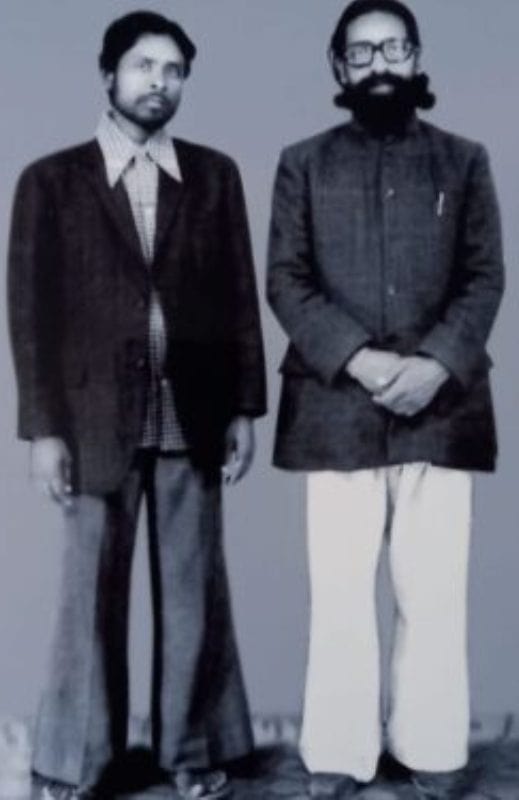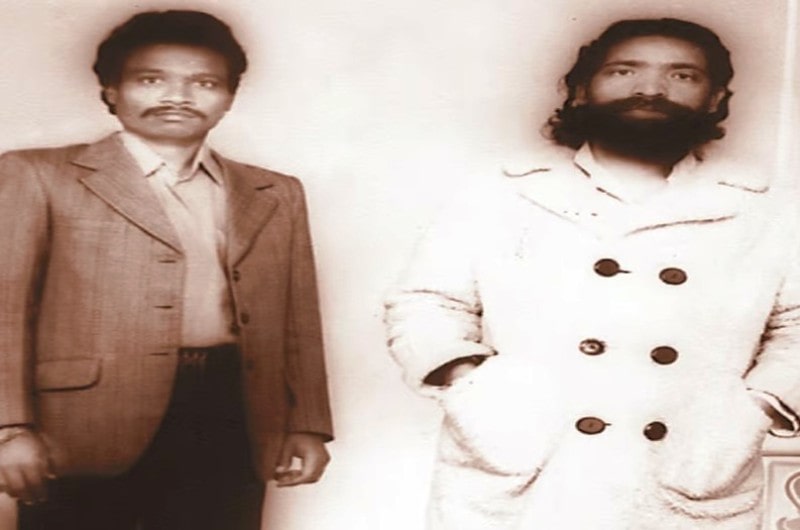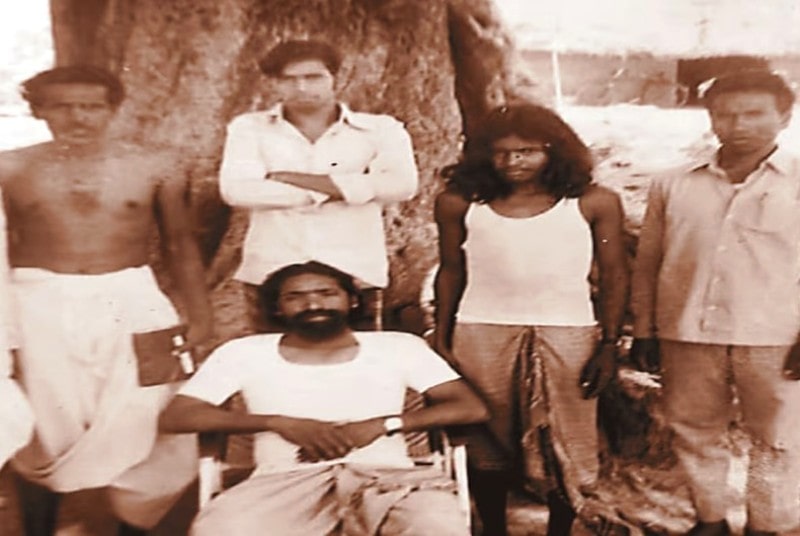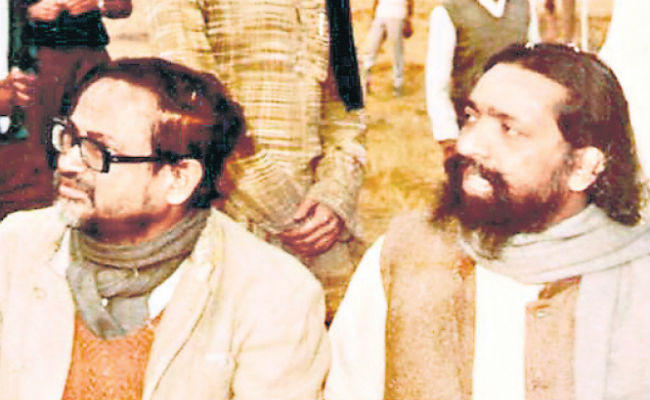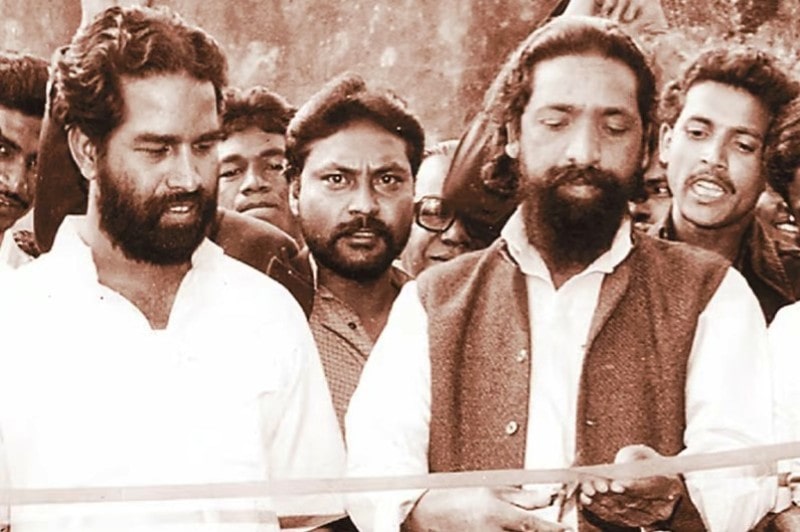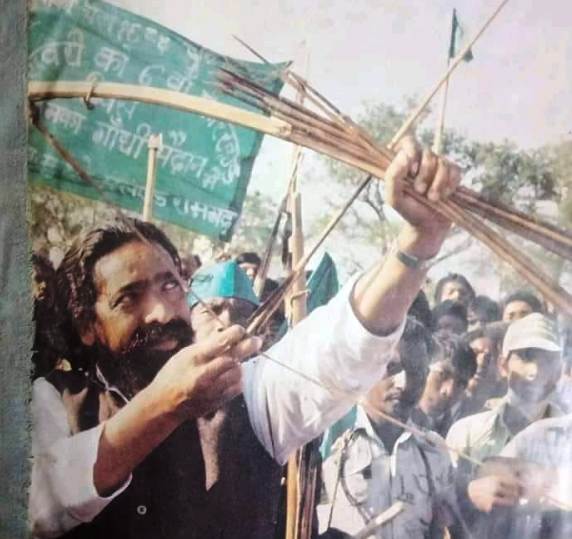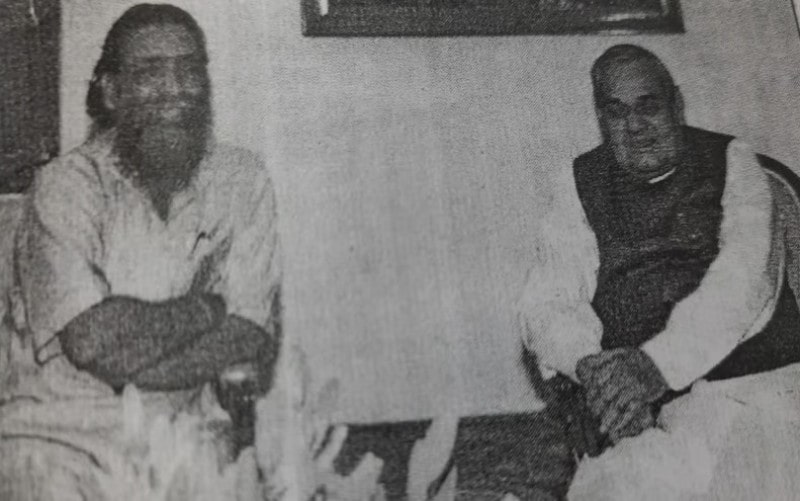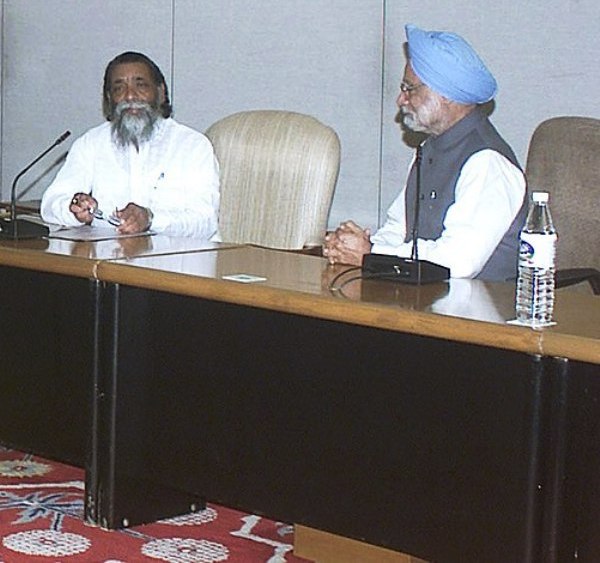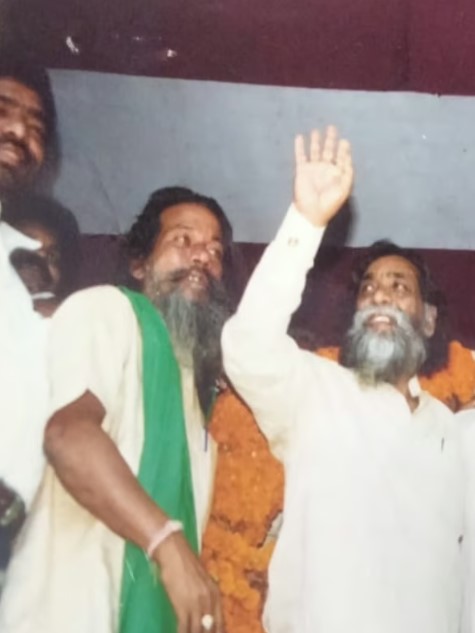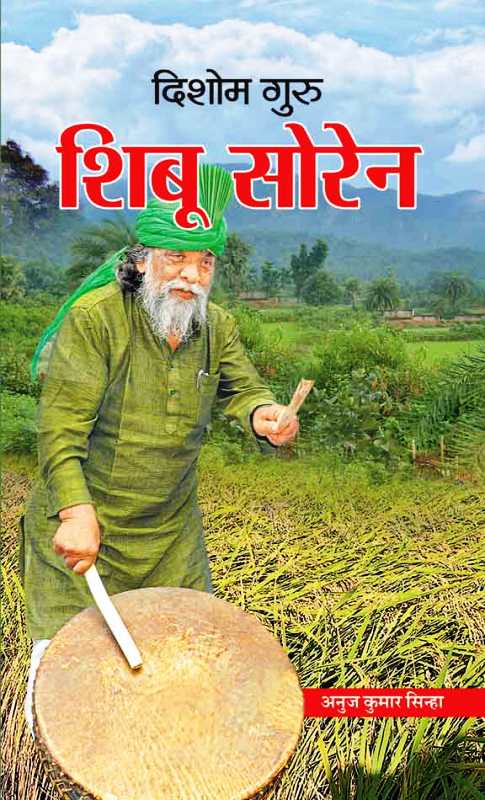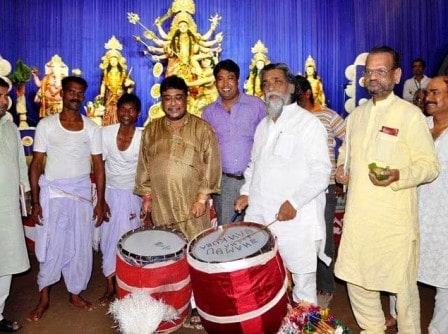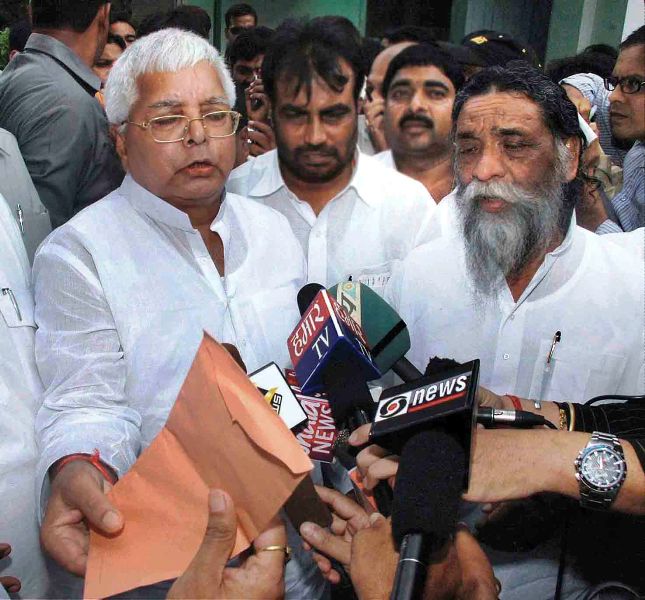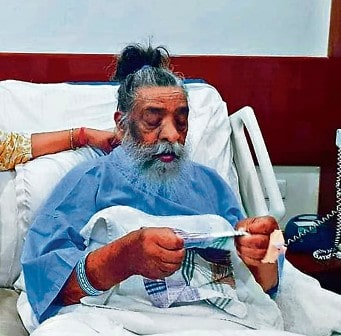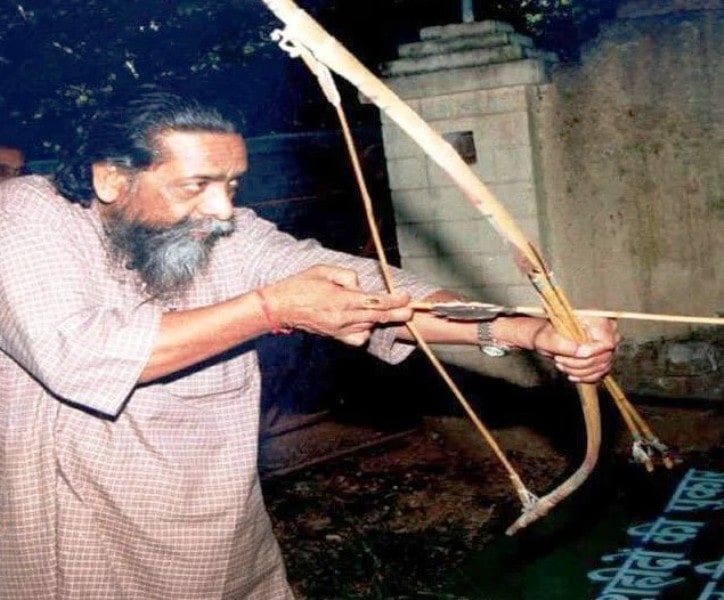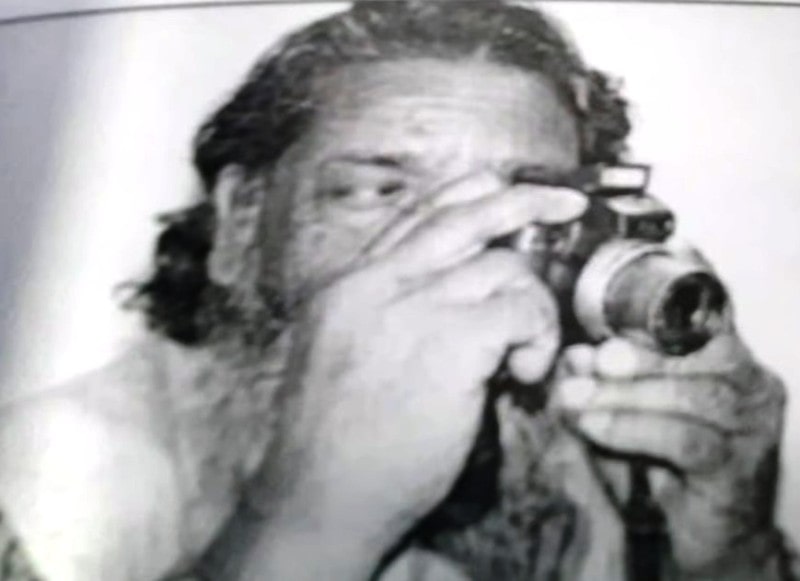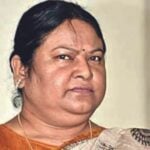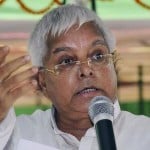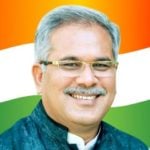Shibu Soren Age, Death, Caste, Wife, Children, Family, Biography & More
| Bio/Wiki | |
|---|---|
| Birth name | Shivcharan Lal Manjhi [1]Lagatar English |
| Nickname(s) | • Guru Ji • Dishom Guruji |
| Profession(s) | Politician, Tribal Activist |
| Famous for | • Being the co-founder of the Jharkhand Mukti Morcha (JMM) • Being one of the most influential tribal leaders in India |
| Physical Stats & More | |
| Height (approx.) | in centimeters- 168 cm in meters- 1.68 m in feet & inches- 5’ 6” |
| Eye Colour | Dark Brown |
| Hair Colour | Salt and Pepper |
| Politics | |
| Political Party | Jharkhand Mukti Morcha (JMM) (1973-present)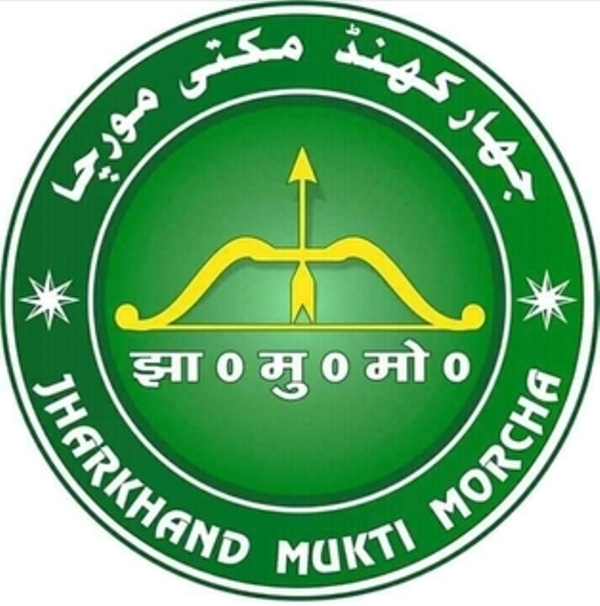 |
| Political Journey | • Co-founded JMM (1973) • General Secretary of JMM (1974-1986) • Member of the Jharkhand Coordination Committee (JCC) (June 1987) • Contested and lost the Lok Sabha elections (1977) • Contested and won the Lok Sabha elections from the Dumka constituency (1980) • Contested and won the Bihar Legislative Assembly polls from the Jama (ST) constituency (1985) • Contested and won the Lok Sabha elections from the Dumka constituency (1989) • Elected as an MP from Dumka (1991,1996) • Became Chairman of the Jharkhand Autonomous Area Council (1994) • Became a Rajya Sabha MP for 1st time (1998) • Became a Rajya Sabha MP for 2nd time (2002) • Disqualified as an MP (2002) • Contested and won the Lok Sabha bye-election from the Dumka constituency (2002) • Elected as an MP from the same constituency in the general elections (2004) • Became a minister without portfolio • Sworn in as a cabinet minister (22 May 2004) 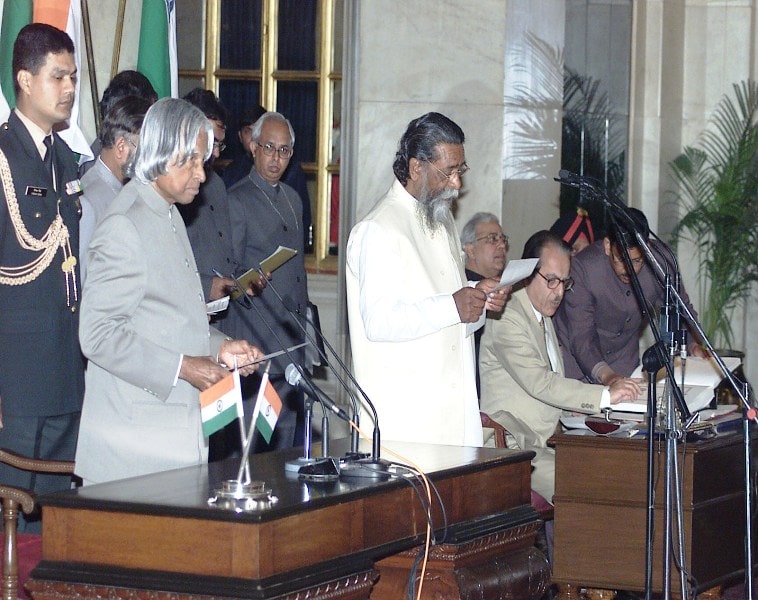 • Served as the Minister of Coal for the 1st time (23 May 2004 - 24 July 2004) • Served as the Minister of Coal for the 2nd time (27 November 2004 - 2 March 2005) • Served as the Chief Minister of Jharkhand for the 1st time (2 March 2005 - 11 March 2005) • Served as the Minister of Coal for the 3rd time (29 January 2006 - 29 November 2006) • Leader of the JMM Parliamentary Party in Lok Sabha (2008) • Served as the CM of Jharkhand for the second time (27 August 2008 - 19 January 2009) • Re-elected as an MP (2009) • Became a member of the Committee on Coal and Steel (2009) • Became a member of the Joint Committee on Salaries and Allowances of Members of Parliament (September 2009) • Elected as an MLA from the Jamtara constituency (2009) • Served as the CM of Jharkhand for the 3rd time (30 December 2009 - 1 June 2010) • Re-elected as an MP (2014) • Became a member of the Committee on Food, Consumer Affairs and Public Distribution (October 2014 - August 2018) • Elected as a Rajya Sabha MP for the 3rd time (22 June 2020 - till the end of the tenure in 2026) 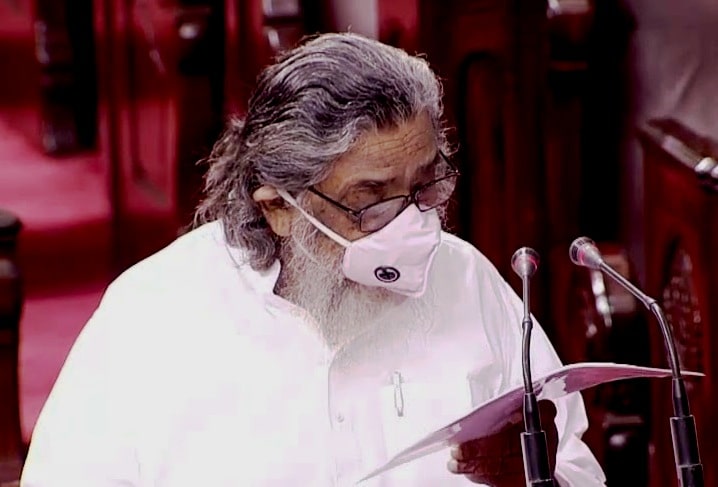 • Became a member of the Committee of Labour, Textiles and Skill Development (13 September 2023) |
| Awards | Mahanayak Award (2014) |
| Personal Life | |
| Date of Birth | 11 January 1944 (Tuesday) |
| Birthplace | Nimra Village, Hazaribagh District, Bihar, British India (now in Jharkhand, India) |
| Date of Death | 4 August 2025 |
| Place of Death | Sir Ganga Ram Hospital, Delhi |
| Age (at the time of death) | 81 Years |
| Death Cause | Prolonged Illness |
| Zodiac sign | Capricorn |
| Signature | 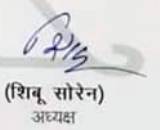 |
| Nationality | • British Indian (1944-1947) • Indian (1947-present) |
| Hometown | Bokaro, Jharkhand |
| School | Md. Yasin Khan High School in Gola, Hazaribagh, Bihar (now in Jharkhand) |
| College/University | Did not attend |
| Educational Qualification | 10th Pass [2]MyNeta |
| Caste/Tribe | Santhal |
| Food Habit | Vegetarian [3]The Tribune |
| Address | Sector – 1C, Bokaro Steel City, Bokaro – 827001, Jharkhand, India |
| Hobbies | Reading, Travelling |
| Controversies | Accused in the Double Murder Case In April 1974, Shibu and eight others were accused by Bahadur Singh of instigating a mob that killed Khirodar Singh and Chundi Singh, who had allegedly killed a goat in Khudko village. While all other accused were acquitted in 1986, Soren was not. However, in June 2010, a District Court in Jharkhand acquitted Soren. [4]Rediff Allegation of involvement in the Chirudih Massacre Chirudih, located in the Girdih district of Jharkhand, witnessed a massacre in 1975 allegedly masterminded by Shibu Soren. During this incident, 10 individuals, mostly Muslims, lost their lives, being labelled as "Diku" or "outsiders." The massacre took place after an intense clash between two factions: one led by Soren, composed of tribal members, and the other affiliated with the CPI, consisting of non-tribal individuals. Following the murders, a First Information Report (FIR) was filed at Narainpur police station, listing 69 individuals, including Soren. According to the final statement made by one of the accused, Lakhindra Soren, and documented by the magistrate at Jamtara Sadar Hospital on 7 February 1975, he claimed that Shibu Soren instructed them to retaliate against Muslims, alleging that they were burning the homes of tribals. The cops filed a chargesheet against Shibu in 1979 and court proceedings began against him on 1 September 1986. Soren, however, had his bail revoked after he failed to be present in the Jamatra court for proceedings. The court also issued an arrest warrant. In 2004, the Jamatra court issued multiple summons to Soren, who failed to respond, leading to the issuance of an arrest warrant. Later, police officers were sent to arrest him, but he managed to escape. Eventually, he surrendered to the Jamatra court. In 2010, a Jharkhand court acquitted him of all charges related to the massacre. [5]India Today Accused of being involved in corruption Soren gained attention for allegedly accepting a bribe to support the P. V. Narasimha Rao government during a no-confidence motion in 1993. Following the allegations, he tried to safeguard himself by claiming legal immunity due to his parliamentary vote. The Supreme Court initially upheld this immunity. However, in September 2022, the Supreme Court announced a reconsideration of the case to redefine the concept of "immunity" by a bench of judges. [6]Outlook Accused of masterminding the murder of Shashi Nath Jha Shashi Nath Jha, who served as the personal secretary to Shibu Soren, was killed in 1994, allegedly under the directives of Shibu Soren. 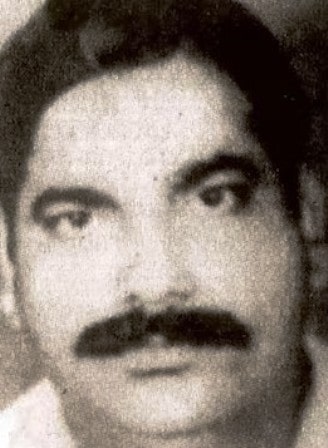 Sources claim that Jha was kidnapped by Soren's loyalists in the Dhaula Kuan region of Delhi on 22 May 1994. He was then taken to Ranchi, where he was murdered and buried in a forest. Following Jha's disappearance, his older sibling, Amar, lodged a First Information Report (FIR) at the Parliament Street police station in Delhi. The Central Bureau of Investigation (CBI) took over the case at a later stage. All individuals suspected to have played a role in Shashi's murder were taken into custody by August 1998. However, Shibu absconded to avoid getting arrested. Consequently, the cops began searching for his whereabouts in New Delhi as well as in Jharkhand. After receiving a final show cause notice, he voluntarily surrendered in court, leading to the commencement of the case in a Special Court located in New Delhi. [7]DNA In court, the CBI claimed that Jha was killed due to his knowledge of a confidential agreement between the JMM and the INC to back the Narasimha Rao-led Union government during the 1993 no-confidence motion. They also alleged that a JMM activist, who was a relative of Soren, had been sexually assaulted by Jha. [8]Rediff Shibu and four others were given life imprisonment by the court in 2006. However, the CBI advocated for the awarding of a death penalty while citing the Parliamentary Attack in 2001 and the Rajiv Gandhi Assassination case in 1991 in which the conspirators were given a death penalty. [9]Hindustan Times The judgement was however changed by the Delhi High Court in 2007. The court criticized the CBI for failing to provide evidence connecting Soren to the murder. [10]Mumbai Mirror The court, in its judgement, said, "We set aside the order of the trial court. the CBI was not able to prove that the body exhumed was that of Jha. The trial court’s order is far from convincing." Later, the CBI and family of Shashi Nath Jha challenged the High Court's ruling in the Supreme Court; however, the apex court held the decision of the High Court in 2018. [11]The Hindu Connections with militant a organisation In an interview in 2008, Babulal Marandi, the ex-Chief Minister of Jharkhand, asserted that Soren had connections with the leader of the blacklisted organization Jharkhand Liberation Tigers (JLT). Marandi said, "There are several instances when extremists after being caught by the police have revealed their connections with various political leaders in the State but nothing has been done." Following Lorence Mundari's arrest, also known as Carlos and a member of the People’s Liberation Front of India (PLFI), he also told the media that Soren had connections with the JLT chief. However, the Chief Minister’s Office refuted these allegations, labeling them as unproven and aimed at damaging the CM's reputation. [12]The Economic Times Referring to Maoists as his brothers and sisters In 2008, Soren made the headlines after he called the Maoists his brothers and sisters during an election campaigning speech. The statement came at a time when Soren was running for the Jharkhand Legislative Assembly bye-election from the Tamar constituency, known as a Maoist stronghold. [13]India Today Sore, in an interview, said, "Nor are they cats or dogs to deserve an iron rod. Nobody has stopped the Opposition from making new friends either." Allegations of breaking the Model Code of Conduct In 2014, he faced allegations of breaking the ECI's MCC after he attended and gave a speech at an Islamic religious event. According to sources, by doing so, he broke the MCC that was put into place by the ECI before the Jharkhand Assembly elections. [14]The Times of India Allegations of acquiring assets and properties using public funds In 2020, BJP MP Nishikant Dubey lodged a complaint with the Lokpal, urging the initiation of criminal proceedings against Shibu Soren and his family. The complaint alleged that the Soren family had illegally accumulated wealth and assets through the abuse of their authority and stealing of public funds. In response, the JMM contested the complaint by filing a plea in court to suspend the case. Subsequently, Dubey appealed to the Delhi High Court, which, in its ruling, declined to halt the Lokpal proceedings against Soren. [15]Deccan Herald |
| Relationships & More | |
| Marital Status (at the time of death) | Married |
| Marriage Date | 1 January 1962 |
| Family | |
| Wife/Spouse | Roopi Soren (also known as Roopi Kisku; JMM politician, became one of the eight vice presidents of the party in 2023)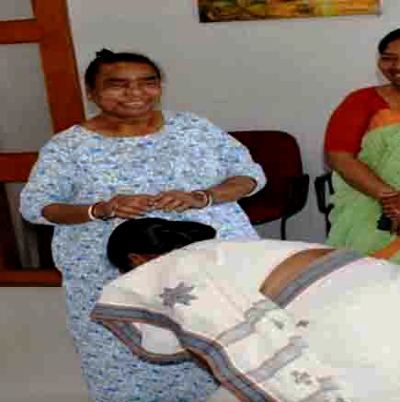 |
| Children | Son(s)- 3 • Durga Soren (died in 2009; JMM leader, former Jharkhand MLA)  • Hemant Soren (former CM of Jharkhand) 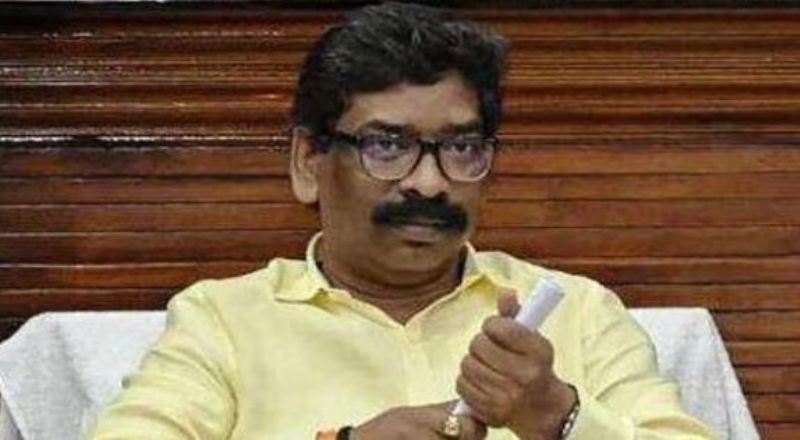 • Basant Soren (Jharkhand MLA, president of the Jharkhand Yuva Morcha)  Daughter- 1 • Anjali Soren (JMM politician) 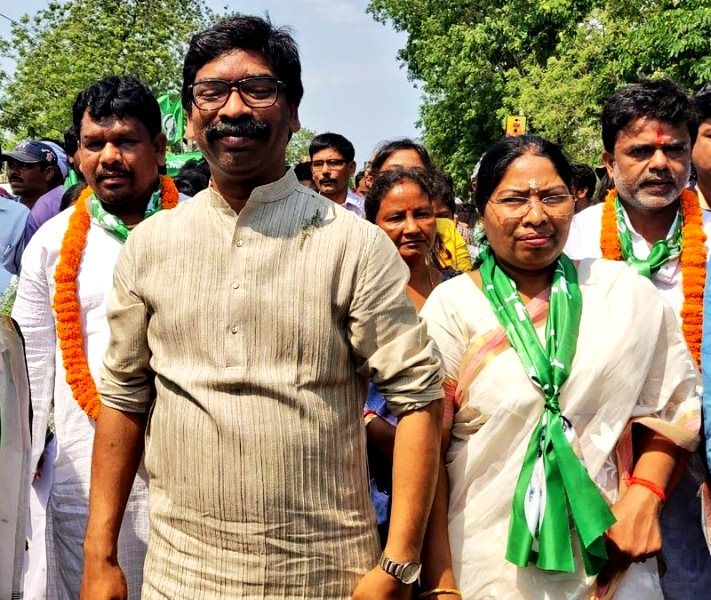 |
| Parents | Father- Sobran Soren (also known as Sobran Manjhi) (deceased; teacher)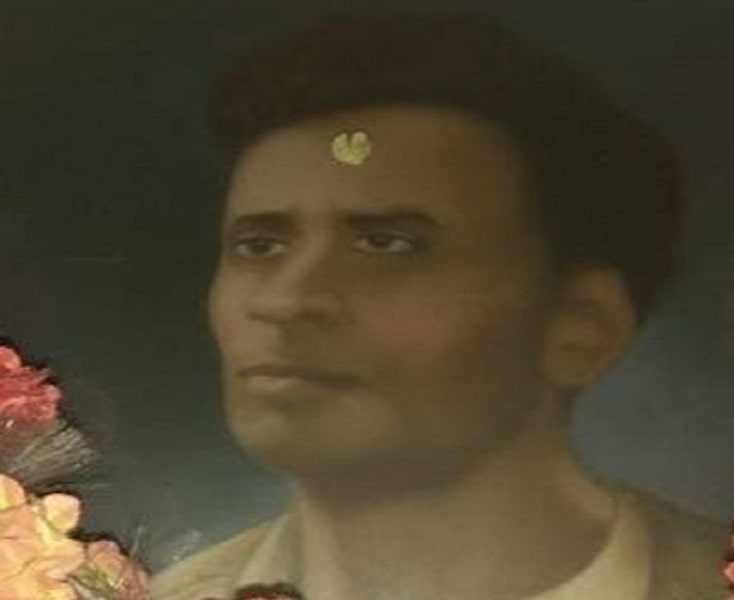 Mother- Sonamuni Soren (deceased) |
| Siblings | Brother(s)- 4 • Lalu Soren (died in 2018; JMM politician, served as the Bokaro District President of the party for 23 years) 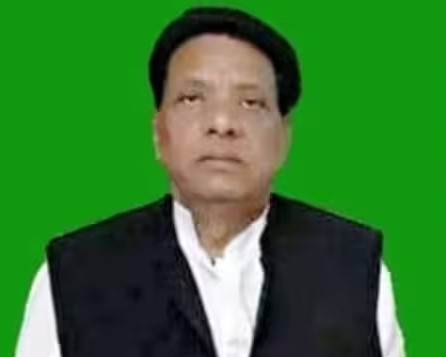 • Rajaram Soren (JMM politician) Sister(s)- 2 |
| Other Relatives | Daughter-in-law(s)- 2 • Sita Soren (aka Sita Murmu) (wife of Durga Soren; JMM MLA) 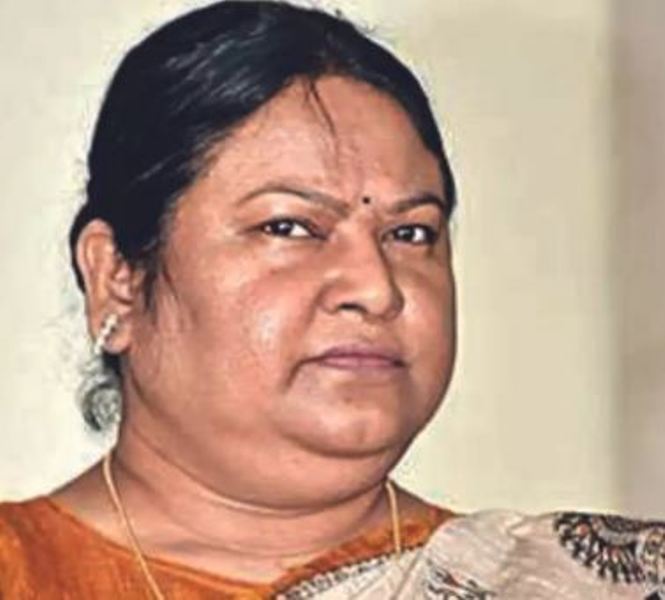 • Kalpana Soren (wife of Hemant Soren; businesswoman)  |
| Favourites | |
| Food | Sattu |
| Beverage | Tea |
| Dessert | Kacha Gulla |
| Style Quotient | |
| Car Collection | Toyota Qualis |
| Money Factor | |
| Salary (approx.) | Salary- Rs. 2 lacs + other allowances [16]Zee News Income- Rs. 11,89,940 (for the financial year 2018-2019) [17]MyNeta |
| Assets/Properties | Movable Assets • Cash: Rs. 95,230 • Deposits in Banks, Financial Institutions, and Non-Banking Financial Companies: Rs. 1,18,34,686 • NSS and Postal Savings: Rs. 11,25,000 • Motor Vehicles: Rs. 25,67,000 • Jewellery: Rs. 9,38,100 • Other Assets (a pistol): Rs. 5,488 Immovable Assets • Non-Agricultural Land: Rs. 92,00,000 • Residential Buildings: Rs. 70,00,000 Note: The given estimates of movable and immovable assets are according to the year 2019. It excludes the assets owned by his wife and dependents. [18]MyNeta |
| Net Worth (approx.) | Rs. 1,03,12,288 Note: The net worth was for the financial year 2019. It excludes the net worth of his wife and dependents. [19]MyNeta |
Some Lesser Known Facts About Shibu Soren
- Shibu Soren was an Indian Jharkhand Mukti Morcha (JMM) politician, who had held the office of the Chief Minister of Jharkhand thrice, the post of a Rajya Sabha Member of the Parliament thrice, the post of the Lok Sabha MP many times, and the President of the JMM ten times. Shibu faced allegations in both the 1975 Chirudih Massacre and the 1994 Sashi Nath Jha murder case. He was the father of the former Jharkhand CM Hemant Soren.
- While studying in school, Soren resided in a hostel along with his brother.
- He, however, had to leave his studies after the 10th standard because goons murdered his father. He had to take on the responsibility of looking after his family’s financial needs, so he took a job as a wood merchant.
- Shibu talked about his father’s passing in an interview, and claimed that the financial condition of his family had become so dire that his mother had to sell her jewellery. He said,
After the murder of my father, my mother somehow educated us brothers and sisters by selling her jewellery.”
- Shibu became inclined towards tribal activism following the death of his father.
- He began taking part in public meetings conducted by the well-known tribal activist Hori as a youngster. According to Soren, he took part in numerous agitations organised by Hori but never joined his organisation. Hori used to raise the issue of giving equal rights to the tribals and creating a separate state, Jharkhand, from Bihar.
- Soon, his stature as a tribal activist increased as a result of which he started leading mass protests and rallies while carrying forward the agenda of Hori.
- He also took the responsibility of redistributing tribal land, originally granted to mining companies and landlords by the authorities by the government, back to its rightful owners.
- At 18 years old in 1962, Shibu Soren founded the Santhal Navyuvak Sangh to address tribal issues in Bihar. He then began targeting affluent moneylenders and gained a fearsome reputation. He also earned the title of “God” among the tribals.
- The Sangh later began targeting Dikus, also known as the outsiders, with the intent of driving them away from the tribal areas.
- During the late 1960s, many sources claimed that Shibu established a parallel administration in the tribal regions of Bihar, with support from the Communist Party of India (Marxist-Leninist). He spoke of it in an interview, and said,
Here, we were owners of our fields but attempts were being made to dislodge us. The members of the red parties were with us, so were those of other parties. All of them wanted the people of Jharkhand to get their rights.”
- Shibu entered politics in 1973 with the establishment of the JMM with A. K. Roy, a Marxist trade union leader from West Bengal, and Binod Bihari Mahato, a Kurmi-Mahato leader.
- Soon after its establishment, the JMM began a campaign named “Reclaim the lost tribal lands” and began agitating for the creation of Jharkhand. For it, the JMM, led by Shibu Soren, undertook many protests and enforced economic bandhs to put pressure on the Indian and the Bihar governments.
- Soren played a crucial role in formulating policies that resulted in the incorporation of predominantly Other Backward Class (OBC) industrial workers, which led to an increase in the power of the workforce of the JMM.
- Many young leaders left the party and formed the All Jharkhand Students Union (AJSU) after it came to the limelight that Soren was trying to strike a deal of alliance with the then Prime Minister of India, Indira Gandhi.
- According to sources, the Santhal Navyuvak Sangh was involved in the Chirudih massacre in 1975, in which 10 people were killed. Out of the 10 people, the majority were Muslims.
- In the same year, Shibu went into hiding in an ashram in the thick forests of Pokhra, Jharkhand, after an arrest warrant was issued against him by the Indira Gandhi-led Union government during the emergency. He continued coordinating the working of the Sangh from the Ashram.
- In 1976, he turned himself in to the authorities following persuasion from a close friend, the Deputy Commissioner of Dhanbad.
- After going to jail in 1976, Shibu initiated the organisation of Chhath within the prison. He initiated it after he witnessed a fellow female inmate singing the Chhath song, unable to celebrate with her family due to her imprisonment. While giving an interview, a senior journalist said,
Shibu Soren could not understand anything after listening to the song of the woman prisoner in the jail, he asked another activist of Jharkhand movement and Jhagdu Pandit in jail about this. Jhagadu told them that the woman performs Chhath every time, but this time she is in jail for a crime, hence she is not able to perform Chhath, hence she is singing Chhath songs in great pain. Till then as a tribal leader Prashant was deeply saddened to hear the plight of a non-tribal woman. He made arrangements for the woman to observe Chhath fast in the jail itself.”
- He headed the Dhankati Movement under which he led numerous protests among tribal communities to reclaim their land from the zamindars who had allegedly acquired it through dishonest means.
- He formed a group of Adivasis to safeguard women cutting crops in the zamindars’ fields using bows and arrows. This action was in response to the unjust seizure of tribal land. It resulted in a law and order crisis that led to numerous casualties.
- As per sources, Soren had given clear instructions to those involved in his movement to avoid hurting family members of the zamindars. He also instructed the Adivasis not to damage the property of the zamindars that had not been made on tribal land.
- Soon after becoming a member of the Jharkhand Coordination Committee (JCC), Soren, along with the JMM, left it, saying that “the collective leadership was a farce.”
- Soren was disqualified as a member of the Rajya Sabha in 2002 for holding an office of profit by being chairman.
- Soren resigned as the coal minister for the first time on 24 July 2004 after a court issued an arrest warrant against him for his role in the 1975 Chirudih massacre.
- On 2 March 2005, he resigned as coal minister for the second time to take over the office of the Chief Minister of Jharkhand.
- Shibu Soren left the Chief Ministership of Jharkhand on 11 March 2005 after he failed to prove the majority of his government in the assembly.
- He had to resign as the minister of coal for the third time on 29 November 2006 after Prime Minister Manmohan Singh asked for his resignation following his conviction in the 1994 Shashi Nath Jha murder case.
- His second and third terms as the Chief Minister ended with the imposition of the President’s rule in the state on both occasions. President’s rule was declared during Shibu’s second tenure as a CM, as he was unable to become an MLA, which is a constitutional requirement for a CM of a state. Sources also claimed that not only did his family members not vacate their seats, but other JMM MLAs reportedly rejected the idea, stating that if Shibu’s family members were not willing to give a seat to him, they saw no reason to do so themselves. [20]Hindustan
- He got a total of 3,35,815 votes in the 2014 Lok Sabha elections.
- He received criticism from the tribal people who attended his election rally in 2014 after he spoke against the consumption of liquor. Many of those who attended the rally said that Soren’s advocacy against liquor was not justified, as the earnings of the tribals depended upon making and selling alcoholic beverages. [21]The Times of India
- Due to his influential stature as a tribal leader, he was often referred to as God in the tribal areas.
- Many publications have been released about Shibu Soren, including Shibu Soren Jharkhand Andolan Ka Ek Siprahi (2015), Dishom Guru Shibu Soren (2020), and Tribal Hero Shibu Soren (2023).
- Soren knew how to play traditional tribal instruments such as Nagada and Dugdugi. He had once revealed that when he went to tribal areas, he signalled his arrival using such instruments.
- In an interview, he revealed that he had a very tight routine, and even if he slept late at night, he got up early in the morning.
- Neither did Shibu drink alcohol, nor did he consume tobacco. Several sources claim that he dislikes those who indulge in such activities. [22]The Times of India In an interview, he revealed that he was once about to beat his uncle, who refused to give up drinking even after Shibu’s continuous requests.
- He once shared a story of his days as an activist and revealed that while having dinner with his followers in the forests, he heard a distant dog bark. Relying on his instincts, he went to check and discovered that the dog was alerting them about the approaching police force, which was there to take him into custody.
- He had supported the candidature of the RJD chief Lalu Prasad Yadav to the legislative assembly many times, as he considered him to be a close friend.
- He used to prepare his own food and liked to eat simple food like chapati and green vegetables.
- After his health worsened in 2023, he was admitted to a hospital in New Delhi.
- Hemant Soren, Shibu’s son, went into hiding ahead of an Enforcement Directorate raid on their home in 2024.
- He was fluent in many languages, including Hindi, Bengali, Oriya, Maithili, and Santhali.
- He had a garden in his home, where he grew fruits and vegetables such as papaya, cucumber, and carrots.
- According to Hemant, he used to stay at the guest house or his relatives’ home when Shibu was at home because of his strictness. Hemant spoke about it in an interview and said,
I think he is too strict. Whenever he is at home, I move over to a guest house or a relative’s place. He does not allow anyone to sleep till late or enjoy good food. Even smoking and drinking are strictly prohibited.”
- He had a fondness for archery and photography. According to sources, he had purchased a Polaroid camera when he was young and had just entered politics.
- Shibu Soren passed away due to a prolonged illness on the morning of 4 August 2025 at the age of 81. His death was confirmed at 8:56 AM.
- His son, Hemant Soren, shared the news on X, referring to his father as “Respected Guru Dishom” and expressing his grief by saying,
Today, I have become a zero.”
- About a month before his death, Soren suffered a stroke and was placed on life support. He had been battling kidney issues for a long time and was under the care of Dr. A.K. Bhalla and the Neurology and ICU teams at Sir Ganga Ram Hospital, Delhi, during his final weeks.
References/Sources:

